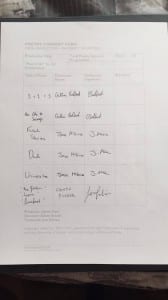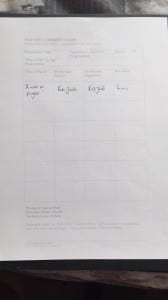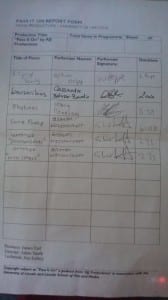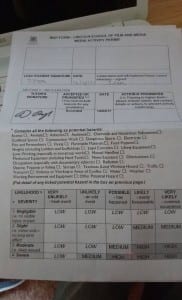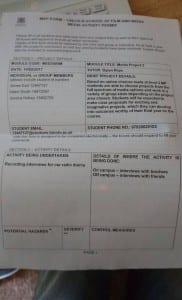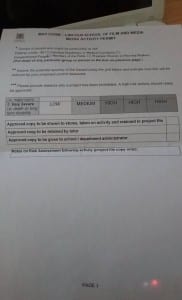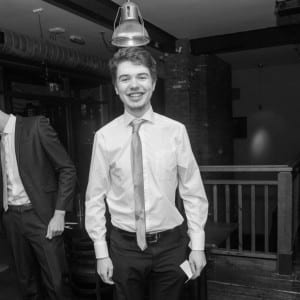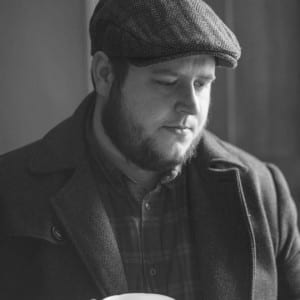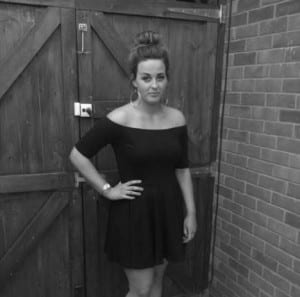Article Looking At Example of Creative Skills Being Learnt/Passed On
To get a good idea of how our podcast should sound, it is important to research some information before hand, and by looking at articles it will give a good insight into key examples that could in theory be turned into a podcast. The article that I looked at was from The Guardian, written by Martin Williams which is called “What’s the best way to teach languages?”
As soon as I found this article, I knew it would be useful because it focuses on the whole idea of teaching people things, which is the aim of our podcast, whether it’s in the form of learning it yourself, or being taught how to do something. The key element that is evident in this article is the idea of motivation, and the way in which inspiration works, with “the UK’s most multi-lingual student speaking 11 languages” (Williams, 2013) saying it is all down to the fact that he wanted to converse with any individual in the world in their native language.
As well as this, Luca Lampariello who speaks 12 languages, as well as being a language consultant says that languages “can only be learnt” (Williams, 2013) as opposed to them being taught. This means that teachers at schools are only there to motivate students with more interactive tasks nowadays, which will inspire them to learn outside of school too, which could be done by watching things such as foreign films.
Interviewing anyone from this article would obviously be an ideal element for any podcast, especially one that looks at passing on skills which is the whole idea of our project. This is because there are so many individuals that have a great passion and interest in learning languages, which would give them motivation to help teach the skill to other people in the future. This is highlighted by Richard Simcott, who is a hyper polyglot – which basically means a talented person who can learn a lot of languages very quickly. Richard “has studied more than 30 languages and can converse in around 20 of them”, which all begun when he was very young, and he would use platforms such as books, music and other interactive media to learn these.
Overall then, this article was ideal for the inspiration behind our piece, because we decided to use an individual who had taught herself English as a second language, so reading this piece before interviewing her would give us a range of questions to ask, such as why they taught themselves English, how they did it, and whether they would enjoy passing on the skill.
https://www.theguardian.com/teacher-network/teacher-blog/2013/may/14/best-way-teach-language-schools
Article Looking At Example of Practical Skills Being Learnt/Passed On
Although creative skills are always very impressive, practical skills have arguably even a bigger impact, because these are perhaps easier to pass on. Whilst individuals tend to be born with skills such as singing and writing, practical activities such as sports, cooking and family run businesses have a very tight interlink in the sense that teaching and learning is happening almost simultaneously. This meant that it would be useful to look at an article on an example of this, and I found a piece on Jamie Oliver’s website that was written by cookbook author Jody Vassallo which is called “Cooking together – a family tradition”.
This article immediately grabbed my attention, not only does the first bit “cooking together” strongly imply that there is a great deal of communication going on, the second bit helps emphasise this further by pointing out the family tradition, which basically confirms that there is an element of passing on happening, which is exactly the meaning of our podcast. The very first thing that she mentions is how that this tradition of passing on has been occurring for years and years, which means by nature it is always going to happen in almost any traditional family. Many centuries ago, mums would teach their daughters how to cook, and Jody refuses to believe that this tradition is dying. She says that she keeps this tradition alive by making as many friends as possibly in her local town, and will always seek out individuals if she is aware of them owning an interesting recipe. Not only is it “preserving a precious piece of history” (Vassallo, 2014), but it also allows her to get to know people, so whilst the tradition is still being maintained, individuals are able to build friendships as a result. From a personal point of view, I was taught by my grandmother how to cook various desserts, and Jody mentions this in her article, with people always telling her stories.
While this helps proves that the passing on of recipes is still strong, she also mentions at the end of the article how someone from her yoga class “adapted her mum’s recipe to use the local macadamias” to cook her own baklava. This brief point shows how the girl learnt the recipe off her mum while in her home country Lebanon, and was able to change this recipe slightly when moving to the UK.
This article was therefore very useful for our piece, because it helped us understand just how important cooking can be, not only in terms of tradition, but also through the enjoyment that can come through learning the activity. We are also going to interview a woman who is part of a family who pass on traditions of food, and focus on the aspect of “make do and mend” – which also links back to the article as Jody mentions how her friends always leave her food, which she can turn into a range of dishes.
http://www.jamieoliver.com/news-and-features/features/a-family-tradition/
Podcast Website Research – TED Talks
While last semester it was necessary to research radio stations such as BBC Radio 4 or Siren FM for our radio drama, our podcast this semester would probably fit onto a website where a range of podcasts are available, given that they are part of a genre where almost all the content is niche, and more specifically sought after than dramas, which appeal to a broader, less specific audience. This is backed up by the definition of a podcast which is – “a digital audio or video file or recording, usually part of a themed series, that can be downloaded from a website to a media player or computer” (Dictionary, 2017).
One of these websites is TED Talks, “a nonprofit devoted to spreading ideas, usually in the form of short, powerful talks” (TED, 2017). It is already apparent that our piece – “Pass It On”, would not be out of place on a website on this – not only is it short (15 minute per podcast), but it also spreads ideas – the whole idea of our project is to pass on people’s skills, and by listening to the podcast, the audience may be inspired by a talent that someone possesses, and therefore want to try something new themselves. In their mission statement, they state that they want “to change attitudes, lives and, ultimately, the world” as well as making “great ideas accessible” (TED, 2017) and sparking discussion.
Therefore, it is evident from their short, but effective “about” section, that a podcast like ours, which focuses on the idea of learning, honing, and passing on a talent, would work very well on a website like this.
http://www.dictionary.com/browse/podcast
https://www.ted.com/about/our-organization
Podcast Research – TED Talks – Eduardo Briceno: How to get better at the things you care about
Seeing as I researched the TED Talks website, and was able to make some conclusions from the “about” section, I thought it would be necessary to listen to one of the podcasts to see if my conclusions were correct. The podcast that I watched was a short speech from a man who explained how people could improve at things that they cared about in life, such as a job, hobby, or relationship. Already, we can tell that this will be about spreading ideas, while it also complies with their mission statement, as the aim is to help change people’s views towards the things they care about. He mentions that it is common for people to always try their best in life, but it can be hard for them to get better at the things they want to improve at. The main thing he focuses on is for a good balance between learning and performing – you need to learn how to improve at certain activities, whilst performing this activity in the best way that you can. This balance therefore helps an individual transfer these improvements into their next performance, which could be common in an area such as singing or acting. The issue he picks up on is that most people spend time performing without learning, because they think that their adequate standard is good enough already, and are scared of making mistakes while learning. Finally, the 4 main pointers to succeeding is to believe, want to improve, know how to improve, while being in a low mistake situation.
This piece was an inspiration for our project because the way Eduardo spoke was so motivating and powerful, this meant that we wanted our contributors to all have something unique, which would make the audience feel inspired, and not just settle for second best, but to try new things and perhaps change their lives. The fact that only one individual was present in this podcast meant that with 5 participants in ours, we could easily recreate the feeling that the audience would feel from this TED Talks piece, which to me was a good balance between humour, but significant realisation about what can happen if we work very hard in life.
https://www.ted.com/talks/eduardo_briceno_how_to_get_better_at_the_things_you_care_about
